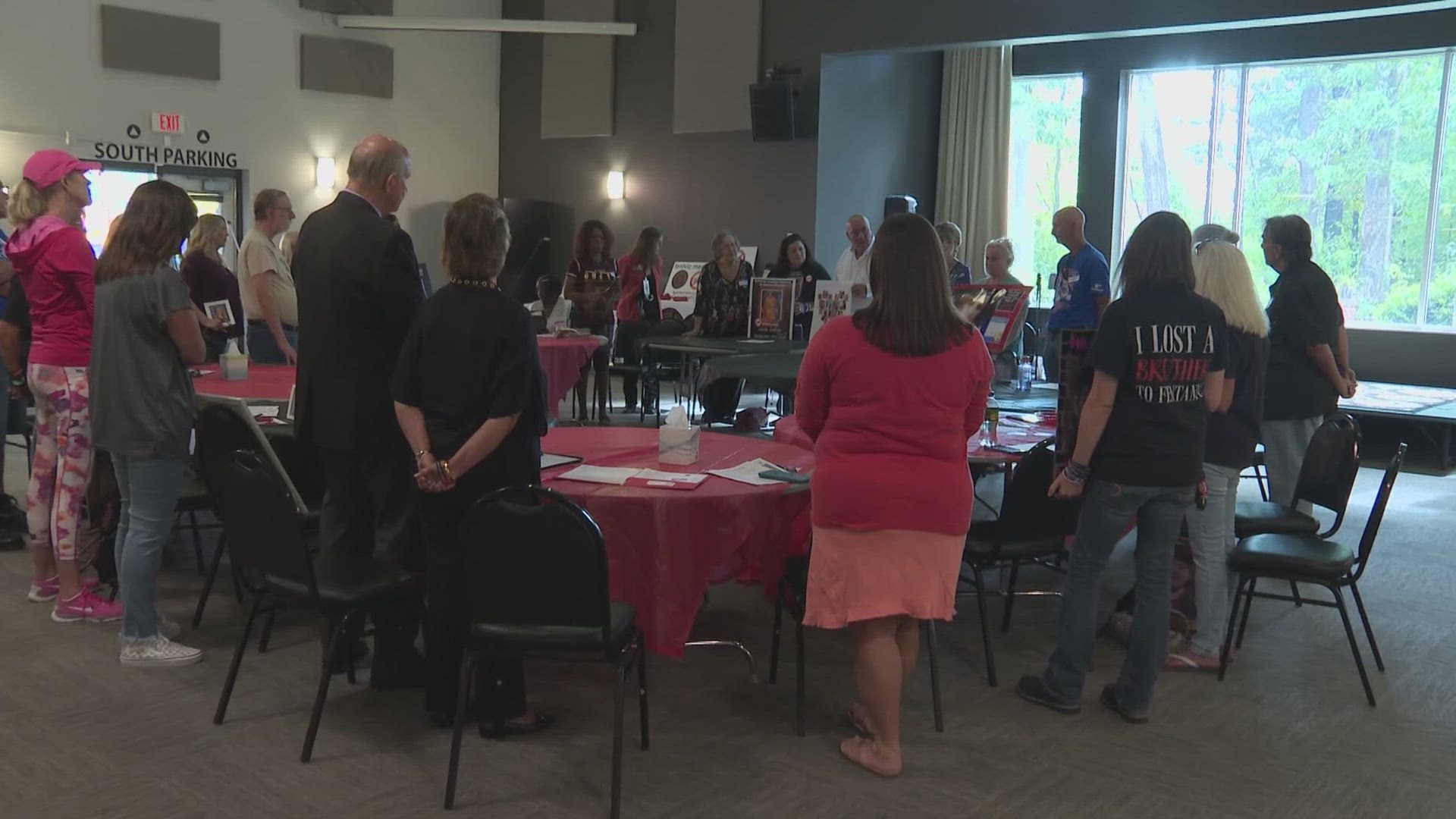BURLINGTON, N.C. — According to the Fentanyl Victims Network of North Carolina, 8 people die each day from fentanyl poisoning.
Fentanyl is a synthetic opioid, 100x stronger than morphine.
It can be mixed with illegal drugs, made into pills, and even candies.
In the eyes of more than 13,000 North Carolina families, fentanyl is a killer.
"We probably already have surpassed 14,000, that's enough to fill the Charlotte Knights stadium of dead people," said Barb Walsh, the Executive Director of the Fentanyl Victims Network of North Carolina.
Walsh lost her daughter, Sophia, to fentanyl poisoning.
She hosts events throughout the state to let other families to know, they are not alone.
"You go into a black hole when your child dies and some people don't come out. I am there for them. I go to the court dates. I feel lucky enough to get them, hold events like this, so they can meet other people who are going through the same thing," said Walsh.
"This is a pain, I don't want to see another mother go through," said Donna Hughes who lost her son, Brandon, to fentanyl poisoning.
For families who have lost a child, grand child, brother or sister, emotions have turned to action.
They continue to fight for legislative changes and working with law enforcement to educate others about the dangers of fentanyl.
"I had a great son, he had a heart of gold, and he didn't want to die but one pill took my son away, and it was due to fentanyl," said Hughes.
Theresa Mathewson lost her son, Joshua to fentanyl poisoning. She said, "the whole reason we're doing this, my whole mission, if you will, in my sons name, is to prevent anyone else from dying like my son did."
Alamance County Sheriff Terry Johnson says lawmakers need to pass stronger legislation to prevent drugs from entering the country.
"Go down to the border and see, come and talk to some of these parents that has lost a child, pay attention to what's going on and then by George is do something about it! Talk is cheap and that's all we're hearing right now is lip service from our politicians," said Sheriff Johnson.
After a tearful exchange of stories from these families, they left knowing their loved ones will help spur change and save others from the dangers of fentanyl.
"There is nothing out there that is safe anymore and it’s just going to get worse. If we don’t start putting a message out there, making people aware, doing more advocacy, doing more prevention, working closely with the sheriffs, our district attorneys, supporting them and getting to support our families equally, so that we can stop another face from being on a board or shirt like my son," said Mathewson.
To learn more about fentanyl and how you can help others learn about the dangers of the illicit drug, visit the Fentanyl Victims Network of North Carolina website.

